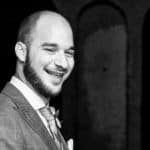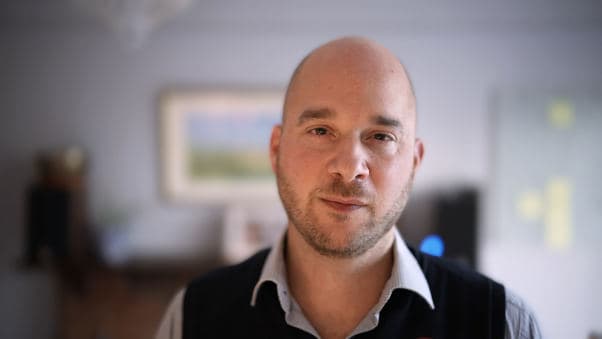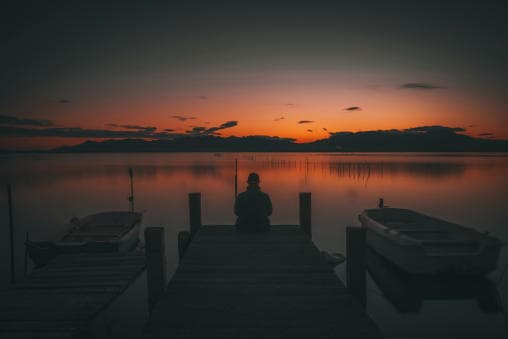Should we rely on self-help or should we get some help. Tune into this episode and see how to use self-help to your benefit but also the benefits of getting help from a professional.
Episode Notes
Do you find yourself consuming self-help materials but never getting to achieve any change in your life? Then this episode is for you!
In this episode we are going to talk about:
- Why self-help appears to be useful but most often isn’t.
- When and how self-help can help you
- The trap to avoid when consuming self-help
- How the ego tricks you in believing you are progressing
- The benefits of getting help
- What are some solid foundations of healing, changing and growing
- Listen to the episode (10 min)
This is the first episode of season 2! The intention for this season it to have short actionable episodes that give more value to you while they take less of your time.
0:08 Intro
1:32 Self-help appears to be useful
1:38 When did self-help books help me
2:04 Fallacies of self-help books
2:07 Getting lost in the knowledge
2:36 How can you apply this knowledge?
3:29 Pride of the ego
4:02 Most successful have coaches, mentors
4:29 What are the benefits of getting help?
4:49 3rd Perspective
5:44 Accountable
6:12 Lean against your weak spots
6:54 Through friction and pain we get growth
7:06 Going to the dentist
7:16 Reddit story
7:38 Solid foundations of change, healing and growing
7:52 Be responsible
8:12 Good old work
8:34 Self-help is first aid, getting help is open heart surgery
8:54 In this episode we talked about?
9:05 Zig Ziglar Quote
9:28 Outro
Transcript
Other things that you’ve been trying to resolve in your life but you end up trying to find the latest book the best tactic the best strategy, in order for you to help yourself, move forward, that will help you create lasting change that you’ve been craving for, stay tuned because in this episode we’re going to explore the pain of self help, and the benefits of getting help.
Welcome my friends to another episode from inside treasures in case you don’t know me, my name is Phoebus, and I love to challenge myself, and those around me, for the purpose of growth. This podcast is about helping you to heal to change and to grow. Now I’m gonna have to be a little bit honest about myself here like because I have been a self help junkie myself.
I just love reading books. I like getting into them. Reading ideas getting through my head and actually trying to see how reading this book is going to help me in my life how it’s going to help me as myself how it’s going to make me grow, how this new idea is going to give me a new perspective that will help me be a better person.
My wife often comes to me and says, Why are you reading this silly books, why are you reading another self help book. What’s the matter with you, you know these things you know a lot of these things and I’m thinking, you still get something out of it, and it’s such a pleasure to read these books. Absolutely. It’s absolutely nice to read those self help books and trying to find things find nuggets of wisdom that we can take away.
What happens is like this kinds of things they appear to be useful. It didn’t they don’t always work for me, which were the times that I actually worked for me, it was by doing the simple exercises that there are in the book, versus reading the whole book and never doing the exercises was about showing up it was about trying ideas in my life, and seeing a way of how I can take those ideas and make them work for me by me putting the work in them. That’s the key with self help books, a great story.
But a lot of times, that’s where we stopped. What happens with reading a lot of this self help books is that we get lost in the knowledge we read book after book after book, and the whole goal becomes to finish the book. It doesn’t become to take the knowledge apply the knowledge, it’s how can I finish this book, this course, this CD series, how can I make sure that I’ve actually listened to these things, because I know that a lot of people not even listening to this so if I’m listening to this or reading this, then I’m getting the benefit of it, which other people don’t.
But what happens to the knowledge itself. Knowledge is not useful when it stays in our mind it’s how we can apply it. What happens this is when we get into this addictive process of trying to consume and consume and consume and fill our minds, what questions to ask when dealing with self help books is like how can I apply this to my life.
How can I apply this book, in general, what’s its main concepts, how can I apply this book question yourself, what are the kinds of things that I can take from this book from this paragraph from this chapter, what are the kinds of things that I can actually use and apply in my life.
How can I, how can I apply them. When can I apply them specific exercises, taking part in them, not just reading the chapter and finishing. Sometimes we say well I finished the book and then I’ll do the exercises, and that at the moment feels like the right thing to do.
Probably most of us will notice is that we never really go back into the exercises. Exercise still remain. And the fallacy of cell phone books is the pride of the ego, the ego gets in the way of trying to figure things out by ourselves. And instead of being humble and asking for help.
We’re going to the ego mode and being too proud. You know what, I’m going to figure this out because I’m going to read the best books, I’m going to find the best information out there, and I’m going to make things work for me, but I’m going to be the one doing it. I don’t want anyone else, helping me. I don’t want anyone else helping me move forward.
You see that’s the trap that the eagle lays, and it keeps us from asking, asking for help, asking from someone from outside thing to keep in mind is like the most successful people actually they keep coaches and mentors around whether it’s Bill Gates Elon Musk, Tony Robbins you name them whoever they are, they’ve had someone who’s helped them out in their life, or who’s actually helping them out.
So remember asking for help. It’s not a way of you feeling weak and useless. It’s actually a way of empowering yourself. It’s actually a way of tapping into other people’s brainstem and what are the benefits of getting help them. We’re living our truth and we have our own narratives, we have our buying in. We buy into our own narratives.
That’s very hard to break from women. Until we develop some kind of awareness. We talk about things, accept that we let things off our chest. We have someone else with a third perspective actually look at our own truth challenge of truth, make us more aware of that truth that we’re living in and make us understand that a different ways, different narratives that we can live and adopt adopting a third person perspective, a lot harder one is happening within our own view within our first view, we always tend to have this first view. Look, I mean a second perspective and a third perspective, really help us see things differently.
Adopt different mindsets, try new things and I think that we wouldn’t usually try just because they’re outside of the way that we look at things. Someone else can suggest something, but a lot of times it’s about self discovery about looking within and finding new ways of doing things.
But having someone to guide us helps us shift us. That’s where getting help actually helps us even more than just a self help book us it’s about staying accountable when we’re dealing with another person when we’re dealing with someone else who’s outside of us we’re more likely to build that accountability and all be self accountable, we can all have our boundaries. But when it has to do with dealing with other people somehow we’re more likely to show up, doesn’t guarantee that will always show up.
They could say well I don’t care today I don’t feel like it today. No one’s going to force you so even when you’re getting outside of help. You’ll have to do things yourself. Someone else can help you push and lean against your weak spots, what are your weak spots.
The person could pick them up. You know them, you deeply know them, but the tendency that we have is not to focus and persist on whatever it is that is coming up, are usually habits, or to run away from it, to, to freeze to put it off to look somewhere else to be distracted to do something else.
When you have someone else on the other side. Someone else was telling you you said that this is important for you. So how can you make it happen. How can you make it in reality, one we’re willing to go and run away realness back. And then we focus on it again.
And then we work with emotion and we feel the emotion we’re more we work with it, the more we get through. It’s very easy when you’re in it to think, Oh, now I don’t want to do this again this is going to hurt this is painful but actually it’s through this pain is through this friction that we express ourselves differently.
It’s like going to the dentist, you know, you go to get your teeth fixed it doesn’t mean it’s not going to hurt but at the end The end result is a better result. I was reading a story the other day on Reddit and the person who wrote it was pretty much asking for for a miracle solution he was fine trying to find the glue the method the Messiah, the substance the kind of thing that would help him change.
Help him change that it would magically, all of a sudden take all of these problems away, and will really help him be the person who wanted to be. Once you forget about that idea though, because in a way to change to heal to grow, is when we have solid foundations and the basis of the solid foundation is that we can, we can really rely on his being responsible.
Being responsible for whatever is happening in our lives for the things that we can change in our life. That is also self accountable. We have to be able to get the responsibility because when we get help from outside.
And no matter who comes into your life and who’s able to help you or whatever book whatever course if you’re not able to translate that into some good old work, you’re going to lead into troubles. That’s why a lot of the sessions and the coaching and the mentoring things end up into actionable ways how are we going to apply what we talked about how is it that you’re going to take these things away, and actually do something with them and how we’re going to make sure that it wasn’t just a conversation to happen handed and nothing is going to change.
I can do all the self help that we want but think of self help like first aid. It’s the first day, if you have a small car, yes you can do first aid. You need open heart surgery, but you want someone to be helping you out and want to be looking after you someone who knows things done things been the other people. This episode we talked about the benefits of self help the fallacies of self help and what happens when we get help how we can actually help us move forward.
As my friend Zig Ziglar said, a lot of people have gone further than they thought they could because someone else thought they could. And that’s about having someone outside of you, seeing the potential.
When you can see your own potential, someone who can tell you when you’re going through this path, without a doubt, you’re going to change, without a doubt, you’re going to grow here to help you heal change and grow.
If there’s something that resonated with you, something you need help with reach out to me.
Thank you everybody for taking the time to listen to this episode if you haven’t already, be sure to subscribe. If this content is delivering value to you, if it’s meaningful to you, please go to iTunes go to Stitcher, and rate and review this podcast. If you can think of anyone within your circle anyone who can benefit from this ideas then share this podcast with them, sharing and viewing can help built up this community, to give as much value as possible.
Until next time, my friends, let peace guide your life, love guide your heart and reason guide your thoughts.
Photograph by Marc-Olivier Jodoin




